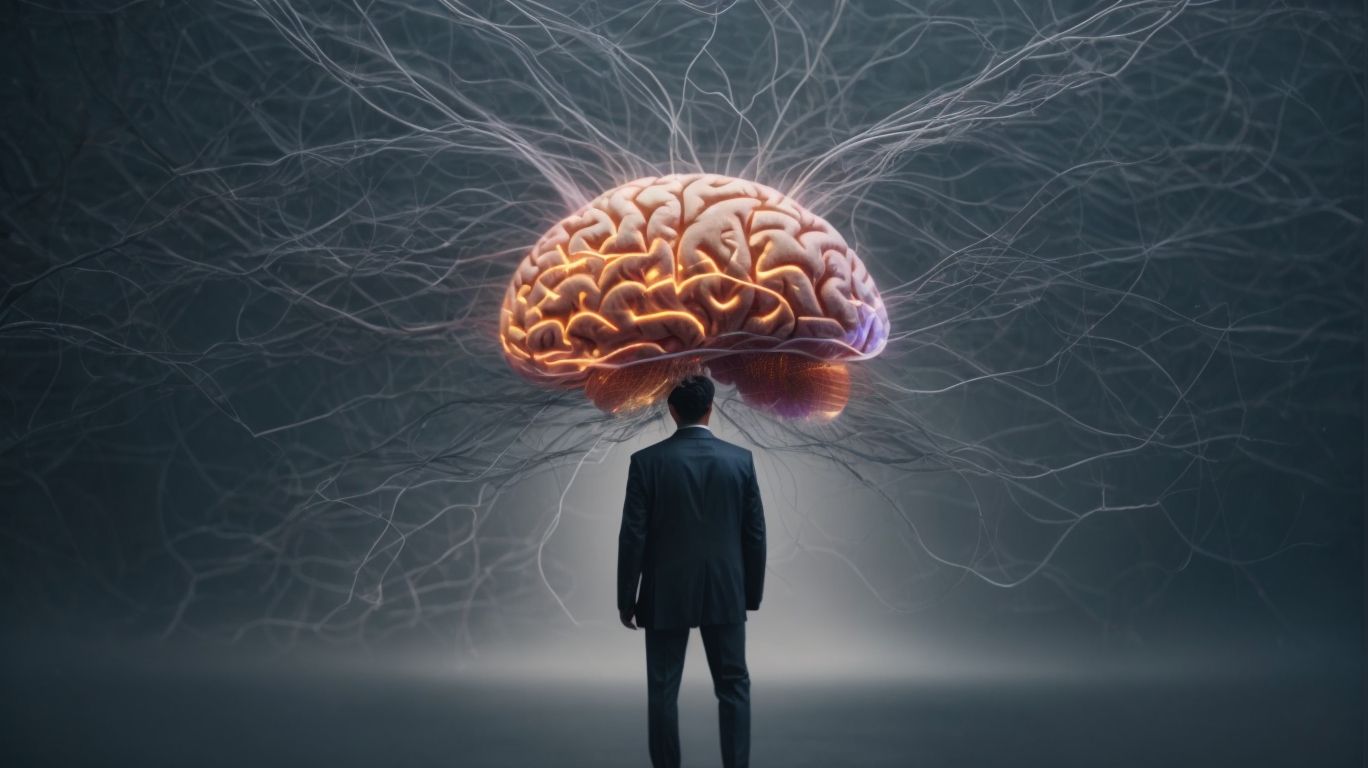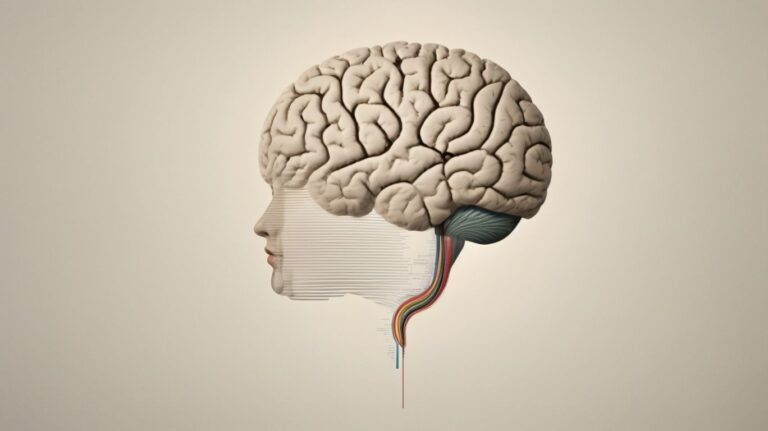Self-efficacy plays a crucial role in shaping our beliefs about our abilities and determining our success in various aspects of life. In the realm of AP Psychology, understanding the concept of self-efficacy is essential for achieving academic excellence, setting and achieving goals, and maintaining mental well-being.
This article explores the four primary sources of self-efficacy, how it is measured, its relationship with motivation, and the distinct benefits of having high self-efficacy. We will delve into how self-efficacy can be developed and strengthened through various strategies.
Contents
- 1 What Is Self-Efficacy?
- 2 How Is Self-Efficacy Measured?
- 3 What Are The Benefits Of High Self-Efficacy?
- 4 How Does Self-Efficacy Relate To AP Psychology?
- 5 How Can Self-Efficacy Be Developed And Strengthened?
- 6 Frequently Asked Questions
- 6.1 What is self-efficacy and why is it important in AP Psychology?
- 6.2 How does self-efficacy affect academic performance in AP Psychology?
- 6.3 What role does self-efficacy play in motivation for AP Psychology students?
- 6.4 Can self-efficacy affect a student’s well-being in AP Psychology?
- 6.5 How can teachers promote self-efficacy in AP Psychology students?
- 6.6 Is self-efficacy a fixed trait or can it be developed?
What Is Self-Efficacy?
Self-efficacy refers to an individual’s belief in their ability to succeed in specific situations or accomplish a task.
Having a strong sense of self-efficacy can significantly impact a person’s behavior, choices, and overall well-being.
According to social cognitive theories, individuals with high self-efficacy are more likely to persevere in the face of challenges and setbacks, as they believe in their capability to overcome obstacles.
This belief in one’s own competence plays a crucial role in shaping motivation and goal-setting. For instance, a student with high self-efficacy in math is more likely to tackle difficult problems with determination and resilience.
What Are The Four Sources Of Self-Efficacy?
Self-efficacy is influenced by four primary sources: mastery experiences, social modeling, social persuasion, and physiological responses.
Master experiences refer to past achievements that contribute significantly to one’s belief in their abilities. When individuals successfully accomplish tasks or goals, it strengthens their self-efficacy.
Social modeling involves observing others similar to oneself successfully perform tasks, enhancing belief in one’s capability to do the same.
Social persuasion is the impact of external feedback from peers, mentors, or coaches, which can either boost or diminish self-efficacy.
Physical and emotional states like fatigue or stress can directly affect self-efficacy levels, showcasing the interplay between mind and body in shaping beliefs.
How Is Self-Efficacy Measured?
Self-efficacy is commonly measured through self-report assessments that evaluate an individual’s confidence in performing specific tasks or overcoming challenges.
Aside from self-report assessments, other methods widely used for gauging self-efficacy include the utilization of scales and questionnaires. These tools delve into various aspects of an individual’s belief in their capabilities, offering nuanced insights into their perceived competence in different areas.
Behavioral observations play a vital role in assessing self-efficacy, as they provide tangible evidence of an individual’s actions and responses in real-world situations.
The evaluation of psychological factors, such as motivation, past experiences, and social influences, is crucial in understanding self-efficacy levels. These measurements not only help in identifying areas of strengths and weaknesses but also offer a deeper understanding of an individual’s self-perceptions and the impact of external influences on their beliefs about their abilities.
What Is The Difference Between Self-Efficacy And Self-Esteem?
Self-efficacy relates to one’s belief in their ability to succeed in specific tasks, while self-esteem pertains to one’s overall evaluation of their self-worth and value.
Self-efficacy emphasizes the confidence individuals have in their capability to perform certain actions effectively, often linked closely to measurable achievements and skills attainment.
On the other hand, self-esteem, as per Maslow’s hierarchy of needs, plays a primary role in the emotional aspect, influencing how individuals view and value themselves in a broader sense beyond performance in specific tasks.
What Is The Relationship Between Self-Efficacy And Motivation?
Self-efficacy plays a crucial role in motivating individuals to set challenging goals, persevere through obstacles, and strive for achievement.
When individuals have high self-efficacy beliefs, they tend to approach difficult tasks with confidence and commitment, believing in their own capabilities to overcome challenges. This belief system not only influences their willingness to take on ambitious goals but also affects how they respond to setbacks. People with strong self-efficacy are more likely to view failures as opportunities for growth rather than insurmountable roadblocks, which in turn fuels their persistence and resilience. By fostering a sense of mastery and control over their environment, self-efficacy enables individuals to push beyond their comfort zones and reach new heights of success.
What Are The Benefits Of High Self-Efficacy?
Individuals with high self-efficacy experience several advantages, including increased resilience, improved performance, better coping skills, and a stronger sense of control over their lives.
High self-efficacy fosters a mindset where challenges are viewed as opportunities for growth rather than threats. This positive outlook can lead to enhanced problem-solving abilities and creativity.
For example, someone with high self-efficacy facing a difficult project at work may approach it with the confidence that they have the skills to succeed, leading to a more innovative and effective solution. Individuals with high self-efficacy are more likely to persist in the face of setbacks, seeing them as temporary hurdles rather than insurmountable barriers.
Increased Resilience
High self-efficacy levels contribute to increased resilience, allowing individuals to bounce back from setbacks, adapt to change, and maintain a positive outlook even in challenging situations.
Self-efficacy, the belief in one’s ability to accomplish tasks and overcome obstacles, serves as a potent shield against the detrimental effects of stress. When individuals possess a strong sense of self-efficacy, they are more likely to view challenges as surmountable and setbacks as temporary. This positive outlook can bolster their resilience, enabling them to face adversity with a sense of agency and determination.
Improved Performance
High self-efficacy is linked to improved performance across various domains, as individuals with strong beliefs in their abilities are more likely to exert effort, persist in tasks, and achieve successful outcomes.
Research has shown that those with higher self-efficacy tend to set more challenging goals and demonstrate greater resilience in the face of obstacles. This mental framework not only impacts individual performance but also influences team dynamics and organizational success. Individuals with a high sense of self-efficacy are more inclined to engage in tasks enthusiastically, which enhances their motivation and dedication to achieving desired outcomes. By believing in their capability to succeed, they are more likely to take on difficult tasks, persevere through challenges, and ultimately excel in their endeavors.
Better Coping Skills
Individuals with high self-efficacy tend to exhibit better coping skills when faced with stress, challenges, or adversities, as they believe in their capacity to manage difficult situations effectively.
Self-efficacy plays a crucial role in how individuals perceive and respond to stressors in their lives. This internal belief in one’s abilities influences the choice of coping mechanisms employed during times of difficulty. Those with high self-efficacy are more likely to approach challenges with a positive attitude and a problem-solving mindset, leading to more adaptive responses.
The environment in which individuals are raised and live also molds their coping strategies. Supportive surroundings, nurturing relationships, and access to resources can enhance an individual’s ability to cope with stress effectively. Conversely, a stressful or toxic environment can hinder the development of healthy coping mechanisms.
Stronger Sense Of Control
High self-efficacy fosters a stronger sense of control over one’s life and circumstances, enableing individuals to take proactive steps, make decisions confidently, and influence their outcomes.
Self-efficacy refers to an individual’s belief in their ability to achieve goals and handle various situations effectively. When individuals possess high self-efficacy, they are more likely to perceive themselves as capable of overcoming challenges and mastering tasks.
This belief in one’s capabilities plays a crucial role in shaping the perceived locus of control, which is the extent to which individuals believe they have power over events affecting them.
People with high self-efficacy often exhibit internal locus of control tendencies, viewing themselves as the primary drivers of their own destiny.
How Does Self-Efficacy Relate To AP Psychology?
Self-efficacy has significant implications in the field of AP Psychology, particularly in understanding how beliefs about one’s abilities influence learning, academic achievement, and psychological well-being.
Research indicates that individuals with high self-efficacy are more likely to set ambitious goals and persist in the face of challenges, while those with low self-efficacy may avoid difficult tasks or give up easily. These patterns of behavior are crucial for academic success, as students with a strong sense of self-efficacy are more motivated and better equipped to tackle demanding coursework.
Numerous studies have shown a positive correlation between self-efficacy and mental health outcomes, highlighting the importance of cultivating a sense of confidence in one’s abilities. For instance, students who believe in their capability to overcome obstacles are less likely to experience anxiety or depression related to academic performance.
Influence On Academic Achievement
Self-efficacy beliefs can significantly impact academic achievement by influencing students’ motivation, persistence, and cognitive engagement in learning tasks.
When students have a firm belief in their abilities to accomplish academic goals, they are more likely to tackle challenging tasks with perseverance and determination. This confidence in their capabilities fosters a positive attitude towards learning, leading to improved study habits and increased academic performance.
In the realm of AP Psychology, the connection between self-efficacy and learning outcomes becomes apparent as students who possess a strong sense of self-efficacy exhibit higher levels of concentration and goal-setting skills, resulting in more successful outcomes. Through various studies and research, it has been established that self-efficacy plays a crucial role in shaping students’ academic trajectories and overall educational experiences.
Impact On Goal Setting
Self-efficacy plays a crucial role in goal setting, as individuals with high self-efficacy are more likely to set challenging goals, persist in their pursuit, and adapt their strategies to achieve desired outcomes.
When someone believes in their ability to succeed, it positively influences the process of goal-setting. For example, a student with high self-efficacy might set a goal to improve their grades by a certain percentage each semester. Due to their belief in their own capabilities, they are more likely to put in the effort required to reach this specific goal.
In a professional setting, an employee who has high self-efficacy may set ambitious targets for sales performance. Their confidence in their skills can drive them to consistently perform at a high level, seeking out new techniques or approaches to achieve notable results.
Role In Mental Health
Self-efficacy is closely tied to mental health outcomes, as individuals with strong beliefs in their abilities tend to exhibit greater resilience, adaptive coping strategies, and positive outlooks on life.
Research indicates that individuals with high self-efficacy levels are more inclined to face challenges head-on, viewing obstacles as opportunities for growth rather than insurmountable barriers. This proactive approach to adversity can significantly impact their mental well-being by fostering a sense of control and enablement. These individuals are more likely to persevere in the face of setbacks, maintaining a sense of optimism that serves as a buffer against stress and anxiety.
How Can Self-Efficacy Be Developed And Strengthened?
Self-efficacy can be cultivated and enhanced through various strategies, including mastery experiences, social modeling, social persuasion, and physiological responses.
One of the most significant ways to boost self-efficacy is through mastery experiences. This involves setting achievable goals, taking gradual steps towards accomplishing them, and celebrating each small victory along the way. By experiencing success, individuals begin to believe in their abilities and competence.
Another effective method is through social modeling. Observing others who have succeeded in similar tasks can inspire and motivate individuals to believe in their own capabilities. It provides tangible proof that success is achievable.
Social persuasion plays a crucial role in building self-efficacy. Encouraging and supportive feedback from others can significantly impact an individual’s belief in their abilities. Positive reinforcement can help individuals overcome self-doubt and embrace challenges.
Mastery Experiences
Engaging in mastery experiences, where individuals successfully accomplish tasks and overcome challenges, is a potent way to boost self-efficacy and confidence in one’s abilities.
When a person consistently conquers difficult tasks or achieves their goals, their belief in their own competence grows. For instance, envision a student who, after diligent studying, earns a top grade on a challenging exam. This accomplishment not only validates their hard work but also strengthens their belief in their academic skills. Similarly, in professional settings, successfully leading a project through complexities can significantly enhance one’s confidence in their leadership abilities.
Social Modeling
Observing and emulating the behaviors of others who demonstrate competence and success can enhance self-efficacy by providing vicarious learning experiences and role models.
In the realm of social modeling, individuals may strive to imitate the skills and behaviors of those they admire or consider successful. By witnessing someone else successfully achieve a desired outcome or exhibit proficiency in a particular task, individuals begin to believe that they too can accomplish similar feats. This process of identification and emulation is a powerful tool in shaping one’s self-belief and confidence. Exposure to competent role models and successful peers helps individuals develop a sense of mastery, as they observe that those around them are capable of achieving their goals.
Social Persuasion
Receiving constructive feedback, encouragement, and positive reinforcement from others can boost self-efficacy by affirming one’s abilities, providing motivation, and instilling confidence.
In social persuasion, the power of supportive interactions plays a crucial role in shaping individuals’ self-efficacy beliefs. When surrounded by a network of people who offer constructive feedback, genuine praise, and unwavering encouragement, individuals are more likely to develop a strong sense of confidence in their capabilities.
For instance, a student receiving encouraging words from a teacher after completing a challenging assignment may feel a sense of accomplishment and self-assurance in their academic abilities. Similarly, in a work setting, a supportive coworker acknowledging a job well done can significantly boost a colleague’s self-belief and motivation to tackle future tasks.
Physiological Responses
Managing physiological responses such as stress, anxiety, and arousal levels can influence self-efficacy by modulating emotional states, cognitive functioning, and perceived capabilities.
When individuals learn effective stress management techniques, they can better regulate their physiological responses and positively impact their self-efficacy. For example, deep breathing exercises can help reduce stress hormones like cortisol and increase feelings of calmness, leading to enhanced confidence in one’s abilities.
Practicing relaxation techniques such as progressive muscle relaxation or mindfulness meditation can promote a sense of control over one’s body and mind, fostering a more resilient self-belief.
Arousal control strategies like visualization and positive self-talk can also play a significant role in boosting self-efficacy by channeling nervous energy into focused determination and resilience during challenging situations.
Frequently Asked Questions
What is self-efficacy and why is it important in AP Psychology?
Self-efficacy refers to an individual’s belief in their own abilities to successfully complete a task or achieve a goal. In AP Psychology, self-efficacy is significant because it can impact academic performance, motivation, and overall well-being.
How does self-efficacy affect academic performance in AP Psychology?
Research has shown that students with high levels of self-efficacy tend to perform better in academic settings, including AP Psychology. This is because they believe in their ability to succeed and are more likely to persist through challenges and setbacks.
What role does self-efficacy play in motivation for AP Psychology students?
Self-efficacy is closely related to motivation, as individuals who have high levels of self-efficacy are more likely to set challenging goals and be motivated to achieve them. In AP Psychology, having a strong sense of self-efficacy can help students stay motivated to learn and excel in the subject.
Can self-efficacy affect a student’s well-being in AP Psychology?
Yes, self-efficacy can have a significant impact on a student’s well-being in AP Psychology. Students with high levels of self-efficacy tend to have lower levels of anxiety and stress, as they are confident in their abilities to handle challenging tasks and situations.
How can teachers promote self-efficacy in AP Psychology students?
Teachers can promote self-efficacy in their AP Psychology students by providing opportunities for success, offering constructive feedback, and fostering a positive and supportive learning environment. Additionally, teachers can help students set realistic goals and provide them with the necessary resources and support to achieve them.
Is self-efficacy a fixed trait or can it be developed?
While some individuals may naturally have higher levels of self-efficacy, it is not a fixed trait and can be developed through experiences and learning. In AP Psychology, students can work on building their self-efficacy through challenging themselves, reflecting on their successes, and seeking support when needed.





